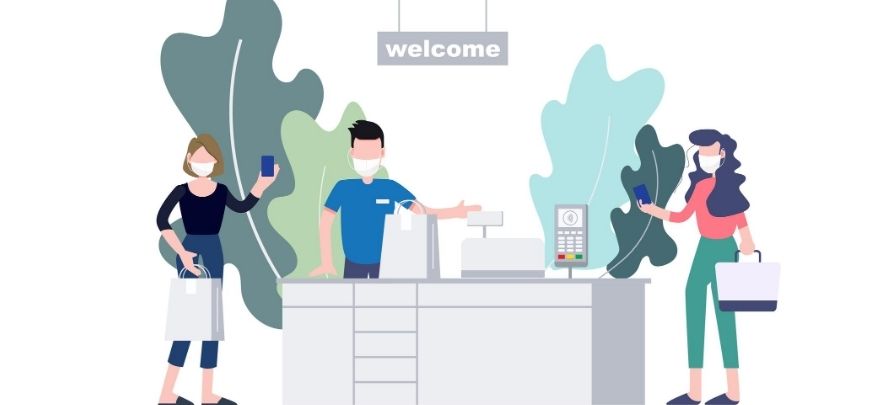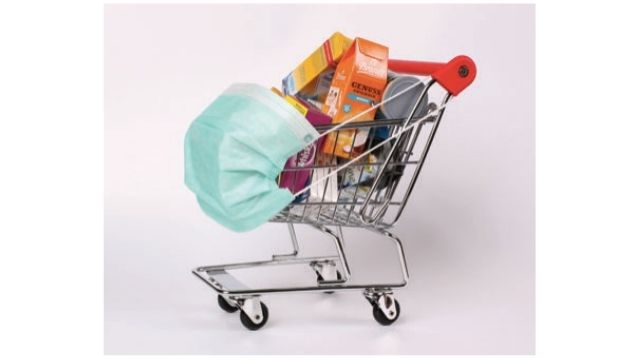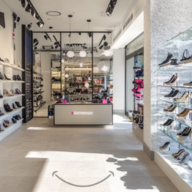Designing the new normal

Retail
258 week ago — 7 min read
The retail industry has seen unprecedented disruption in every way created by the pandemic. Footfall, sales, supply chain, manpower and working capital have been challenged pushing retailers and brands into survival mode. All attention is now on ensuring preparedness for today and for the new normal in retail where consumer trust and confidence will be the core criteria so consumers can feel safe going to a physical store again.
Retail design and visual merchandising (VM) have a crucial role to play at brand touchpoints, especially post lockdown. For the first time ever, senior design and VM practitioners came together to take stock of the situation, deliberate on challenges and brainstorm on design thinking solutions that optimize their resources and skills. Here is a summary of the key takeaways from the virtual discussion hosted by RAI.
Aligning design with the new business normal
Participation in business rituals to re-plan creative and commercial objectives for retail design and visual merchandising will be critical to staying aligned with new consumer and business expectations. This would need astute, proactive planning for different business scenarios and best-case and worst-case revenue predictions. It will help in quick execution if required as actual market conditions unfold.
Empathy for the consumer, staff and business will need to be built in design teams through training and mentoring. With technology becoming a key enabler for customer experience and service, the design community will have to adapt and integrate it for purposeful creativity and making intelligent data-driven design decisions.
‘COVID-19 resistant’ store design will be a crucial. Hygiene-friendly touchpoints like store entrances, cash counters, trial rooms, and delivery areas, should be included in the new normal store operations.
An omnichannel mindset will be essential to understand the post-lockdown consumer who is demonstrating enhanced dependence on digital media for purchase and fulfilment. Offline design professionals will now need to get familiar with this domain to participate effectively in business decisions that involve multiple channels of operations.
Sustainable design thinking approach that advocates reduction in waste, reuse and repurpose of creative display materials will be a new normal in design processes to actively participate in a company’s bottom line objectives. Frictionless cost engineering will have to be a mandatory step in every design process in the new normal retail.
A holistic view of the complete shopping journey of the post lockdown consumer, involving multiple physical and digital store access points, and modes of fulfilment will be crucial for creative design interventions. The design will need to have an end-to-end view of the consumer’s path to be able to contribute to enhancing it.
Design to evoke trust in-store environments
Creating visual symbols of trust in the store would be the most important role of design. Elements, such as sanitizing gates, hand sanitizing stations, gloved handling of products, social distancing markings, hygiene instructions and rituals demonstrated in the store, would be the new normal expression of customer care and empathy.
Integrated communication would be critical across digital and physical store environments to enable a consistent trustworthy voice and experience at every brand touchpoint. Design and display will need to have an end-to-end view of the entire retail ecosystem of the company to achieve this.
‘COVID-19 resistant’ store design and fit-outs with the help of store planning, visual merchandising and communication will be a crucial mission to be accomplished. Hygiene-friendly touchpoints like store entrances, cash counters, interactive screens, trial rooms, common areas, merchandising areas, staff rooms, storage, and delivery areas, should be included in the new normal sanitation rituals of store operations.
Contactless Communication would be a new normal for calling out products and marketing messages which can be changed remotely with ease.
Consumer Research on critical information such as most purchased products, choice of purchase channel, and fulfilment mode would be the best way to get insights into future expectations. This valuable information would help predict post lockdown consumer behaviour which can be used to plan efficient store layouts that deliver shorter dwell time and minimized travel in the store.
Collaborating with partners will help leverage collective strengths to successfully prepare for the new normal. Franchisees would need to be included in the company’s vision with persistent efforts in training and communication. Corporate collaborations with local and government authorities would help add a lot of muscle to the company’s efforts in being quickly effective in a community and region. The design would have to play a key role at the point of interface and help deliver an integrated experience for the consumer.
For the common good
Retailers and brands would need to come together to determine top priorities and requirements for refitting stores in preparation for the new normal store environments. Vendors, known for responsible manufacturing and management, would need to step up to cater to the demand, probably in collaboration with health specialists, to deliver certified hygienic solutions for retail environments in preparation to welcome customers post the lockdown.
Also Read: What COVID has taught us
Article by Surender Gnanaolivu in STOrai Magazine. Surender Gnanaolivu has an experience of over two decades in Retail Strategy, Store Design, Planning & Development, Visual Merchandising, Roll-out Management, Retail Audits, and Training working with some of India's best retail brands.
Image source: shutterstock.com
To explore business opportunities, link with us by clicking on the 'Invite' button on my eBiz Card.
Disclaimer: The views and opinions expressed in this article are those of the author and do not necessarily reflect the views, official policy or position of GlobalLinker.
View STOrai 's profile
Other articles written by STOrai Magazine
The Art & Science of People Pleasing in Retail
25 week ago
Enhanced Brand Storytelling in the Digital Age
57 week ago
Most read this week
Trending














Comments
Share this content
Please login or Register to join the discussion